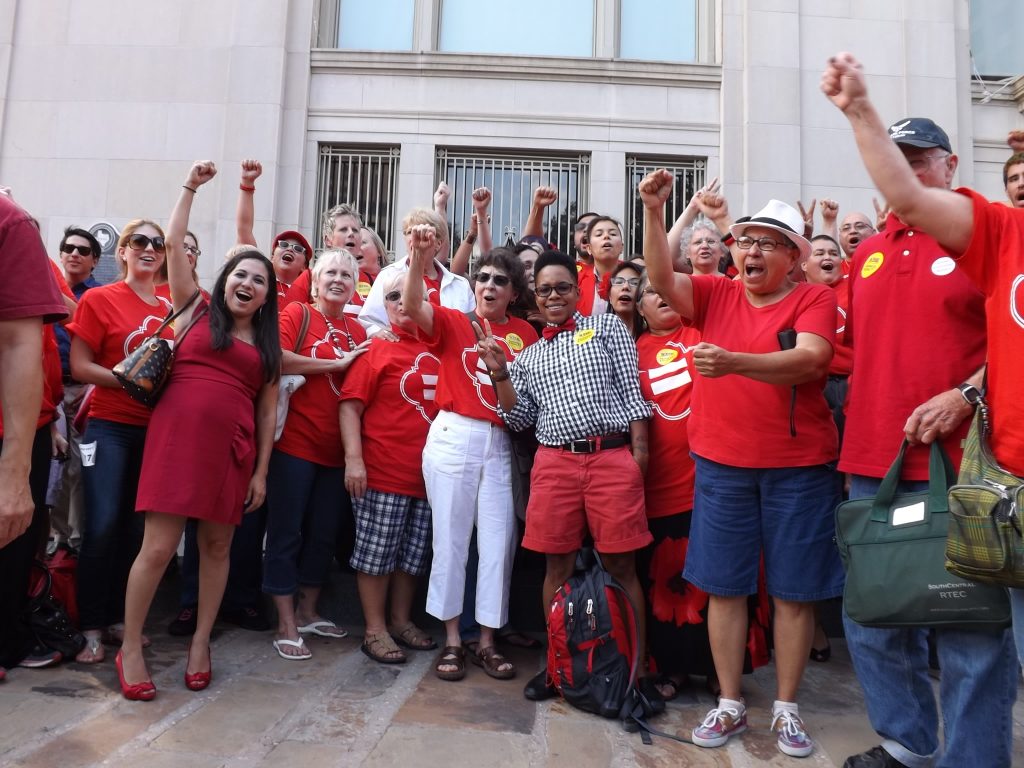
LGBT advocates celebrate the passage of a San Antonio nondiscrimination ordinance outside City Hall. (Antonia Padilla/QSanAntonio)
The San Antonio City Council knew its nondiscrimination ordinance was controversial, but members never expected the high level of protests during the debate or the fallout after it passed.
After the ordinance was introduced, the debate turned ugly quickly.
Marine veteran Eric Alva, who lost his leg fighting in Iraq, was booed by opponents of the ordinance when he addressed the city council supporting the measure. Alva, who is gay, was the first U.S. soldier injured in the war.
“To all you people that preach the word of God, shame on you because God loves me, like the day I laid bleeding on the sands of Iraq, and that’s why he saved me,” Alva said before leaving the podium.
At a prayer vigil outside City Hall, about 300 people protested the ordinance. About 200 signed up to speak at the council meeting.
The ordinance passed on Sept. 5, amending sections of the city code that cover public accommodations, fair housing, city employment, city contracts and appointments to city boards and commissions.
The language in the code now includes sexual orientation, gender identity and veteran status as protected classes.
During the debate, a staffer released a recording of Councilwoman Elisa Chan calling homosexuality “disgusting” during a private staff meeting. She was discussing ways to avoid the inevitable political fallout that would come from voting against the ordinance. Chan refused to apologize, calling the statement her private opinion.
After the ordinance passed, Chan resigned from city council to the relief of the city’s LGBT community. A few days later, however, she announced her run for the state Legislature.
Attorney General Greg Abbott threatened to file suit against the ordinance based on wording removed during the debate. He claimed the new law infringed on religious freedom. His idle threats of filing an injunction continued for a few weeks until he quietly dropped them.
The San Antonio city charter gives opponents of a measure 40 days to gather signatures from 10 percent of eligible voters to force the issue on to the ballot. Church groups collected just 20,000 signatures, so the ordinance remained on the books.
When repeal by popular vote failed, opponents circulated a petition to recall Councilman Diego Bernal, the measure’s sponsor. They claimed as a result of the ordinance, men are using women’s restrooms. Ten percent of voters in Bernal’s district would have to sign a petition.
The group has until March to gather the 6,000 needed signatures.
This article appeared in the Dallas Voice print edition December 27, 2013.
